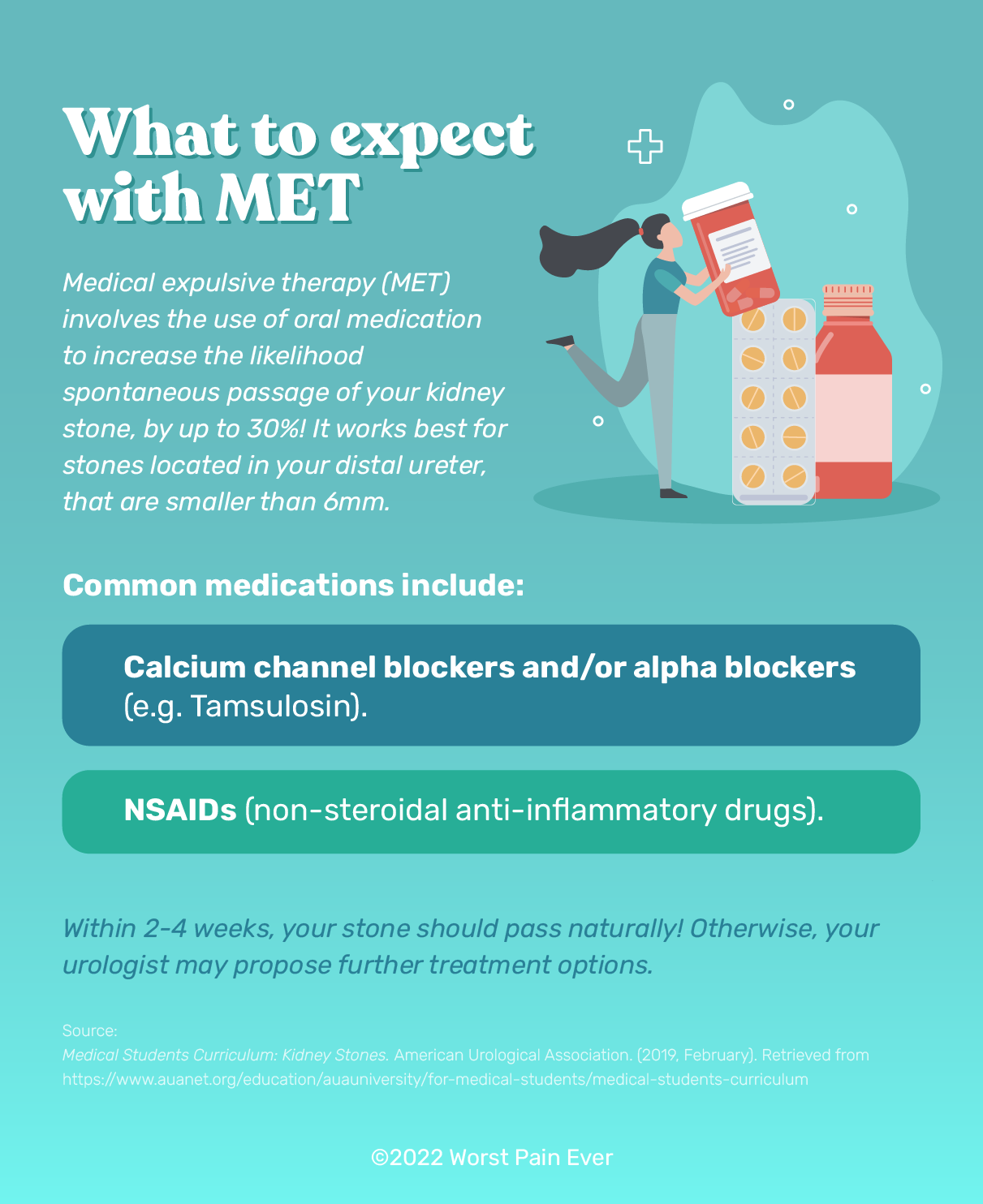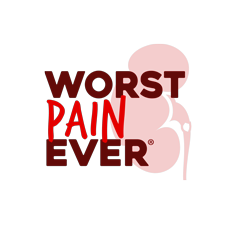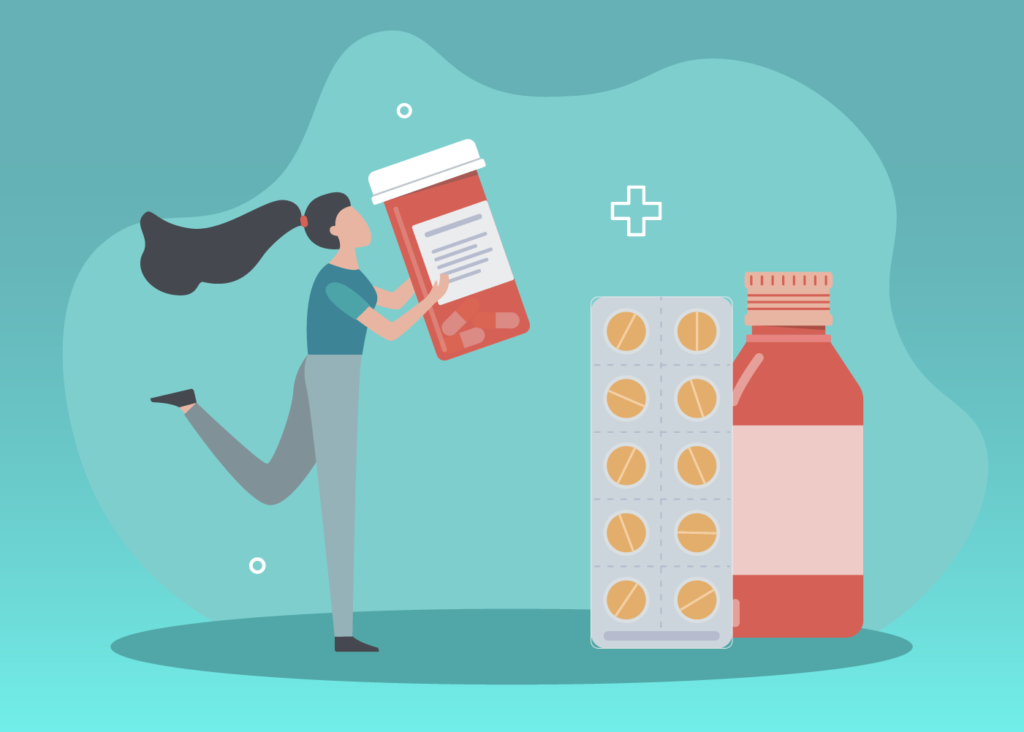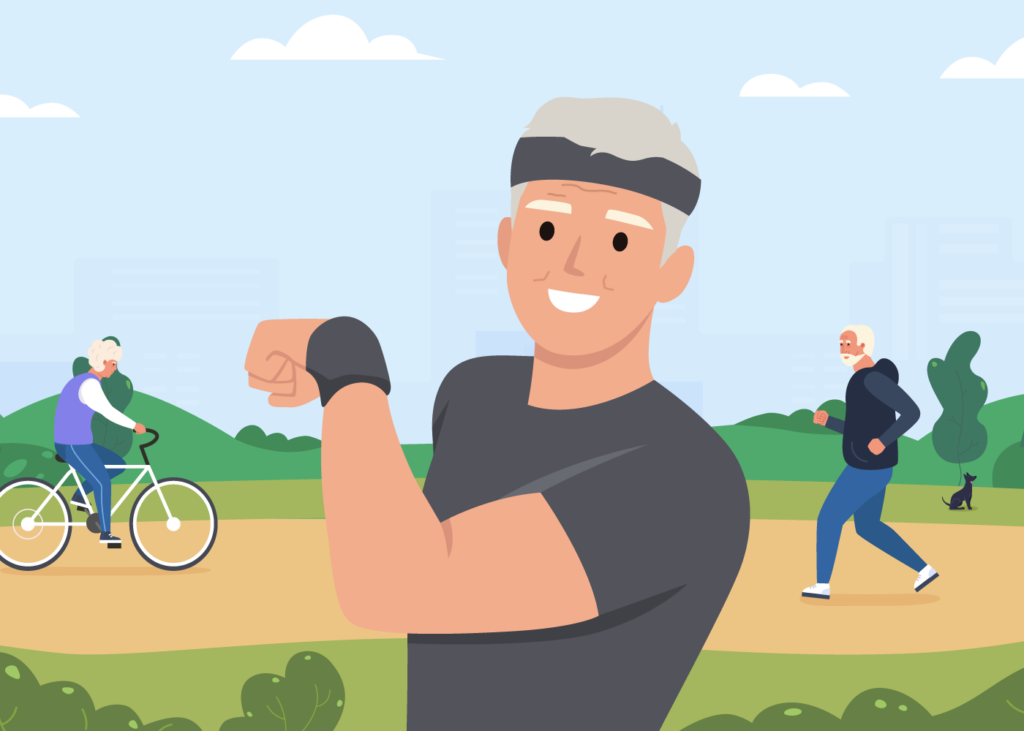Confused about why you were diagnosed with a kidney stone but got sent home with only oral medication? That’s medical expulsive therapy (MET), a more conservative treatment for smaller kidney stones! Let’s dive into some of these medications and how they can help you pass a kidney stone in the comfort of your own home.
What is MET?
MET involves taking prescription oral medication that increases the likelihood of a stone passing by itself by a whopping 30%¹!
These medications work by relaxing the muscles in the lower part of your ureter, which helps to prevent ureteral obstruction and help your stones pass. For patients with smaller kidney stones (<6 – 10mm)¹, MET is a safe and effective way to avoid unnecessary surgeries.
The chances of your stone passing spontaneously are highly dependent on its size and location, so your doctor will have to conduct an imaging test to determine if you’re a suitable candidate for MET.
So, what types of medication will help you pass kidney stones?
- Alpha blockers
Alpha blockers such as Tamsulosin (e.g. Flomax) help to relax the muscles in your urinary tract, making it easier for stones to pass from your kidneys to your bladder². They generally work best for stones that are located at the lower end of your ureter³.
These nifty meds also come in handy for patients receiving shock wave lithotripsy (ESWL) treatments. ESWL involves breaking down the stones with shock waves, and the fragments are typically left to pass on their own through urine. Alpha blockers help ease this process by preventing any blockage or obstruction in your ureter, so the fragments can pass smoothly and with less pain².
- Calcium channel blockers
Calcium channel blockers (e.g. nifedipine) are used to treat renal colic³, which is the pain you feel when a stone gets stuck in your urinary tract. Renal colic can cause ureteral spasms², which happen when your muscles contract suddenly, resulting in a burning sensation or cramping⁴.
Calcium channel blockers may be prescribed together with alpha blockers to ease any cramps or pain you may experience when passing your kidney stone³!
- Pain relievers
When taking alpha blockers and calcium channel blockers, you may experience some minor side effects such as headache, dizziness, and nausea. These are often not too serious and are typically manageable. However, the passing of a kidney stone can still cause a moderate amount of pain and discomfort – that is where pain medication comes in.
Your doctor may prescribe you some oral pills such as ibuprofen or acetaminophen (e.g. Tylenol). They are part of a group of medications called nonsteroidal anti-inflammatory drugs (NSAIDs) that work with your other MET medicines to decrease inflammation¹.
- More helpful tips if you’re receiving MET
Drinking plenty of fluids (enough to create 2.5L of urine (typically 10.5 cups of water a day)) will help flush the stones out of your system.
It may take up to 2—4 weeks for your stone to pass¹. But as everybody’s kidney stones are different, listen to your doctor’s advice on the appropriate time to wait!
If you’re still unable to pass the stone by yourself, or if the pain becomes unbearable, head to the E.R immediately. You may require hospitalization⁵ for closer observation if you’re:
- In excruciating pain or vomiting
- Having a fever (> 101.5 °F)⁶
- Unable to tolerate oral intake (meaning you can’t keep medications, or food or drinks down)
- You have a lot of blood in your urine (i.e. your urine is red and opaque)
Save the image below to have handy for your next visit to your urologist – or share it with someone you know who is looking for kidney stone treatment options!

Sources:
- Medical Student Curriculum: Kidney Stones. American Urological Association. (2019). Retrieved 6 September 2022, from http://www.auanet.org/meetings-and-education/for-medical-students/medical-students-curriculum/kidney-stones.
- Lipkin, M., & Shah, O. (2006). The Use of Alpha-Blockers for the Treatment of Nephrolithiasis. Reviews in Urology, 8 (Suppl 4):S35–S42.
- Bos, D., & Kapoor, A. (2014). Update on medical expulsive therapy for distal ureteral stones: Beyond alpha-blockers. Canadian Urological Association Journal, 8(11-12), 442. https://doi.org/10.5489/cuaj.2472
- Renal Colic: Causes, Symptoms, Diagnosis & Treatment. Cleveland Clinic. Retrieved 6 September 2022, from https://my.clevelandclinic.org/health/diseases/22847-renal-colic
- Medical Expulsive Therapy (MET) | My Kidney Stone. www.mykidneystone.com. Retrieved 6 September 2022, from https://www.mykidneystone.com/en-US/treatment-options/medical-expulsive-therapy.html.
- When to go to the ER for kidney stones. Complete Care. Retrieved March 23, 2022, from https://www.visitcompletecare.com/blog/when-to-go-to-er-for-kidney-stones/





